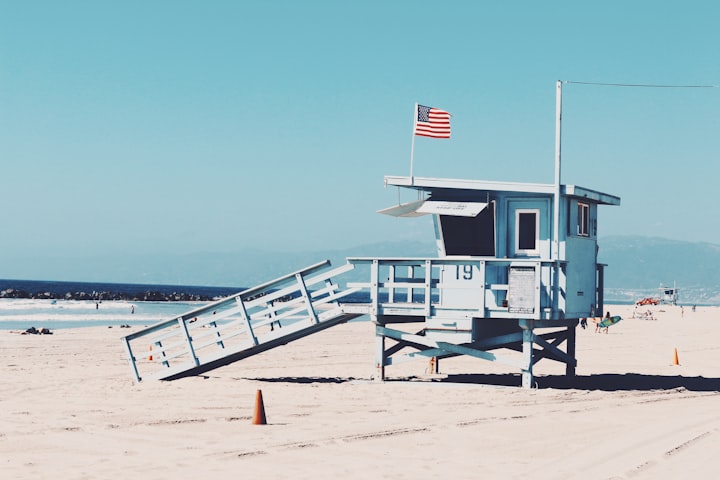Become a Summer Lifeguard
Summer Lifeguard
Become a Summer Lifeguard
Introduction
A career as a pool lifeguard brings challenges and rewards, and can lead to further job opportunities in the aquatic industry. It uses many core workplace skills such as communication, risk management, decision making, problem solving, teamwork, customer service and performing under pressure, all of which are transferable to other industry sectors. With the right qualifications, it is also a job that can take you all over Australia and the world.
You must be a strong swimmer, and, naturally, the job requires a certain degree of fitness, strength and stamina to act quickly in the case of an emergency.
You must have recognised first aid and resuscitation qualifications, and these must be regularly reviewed and updated.
The right to wear the coveted red lifeguard costume comes with great responsibility and requires skill, discipline, high fitness levels and compassion.
Before you can join our team of committed lifeguards you are required to first complete the Lifeguard Award (LA) course and then pass the LA Examination.
The course
Our lifeguard course offers comprehensive training to prepare you for the demanding LA Examination requirements.
Training takes place on Sundays from 09h00 to 13h00, and the duration of the course is between 8 and 12 weeks. Please contact us for details on upcoming courses.
At the end of the course you will be required to complete a 200m beach run – 300m sea swim – 200m beach run in under 10 minutes. You will also have a solid understanding of the following:
WHAT DOES IT INVOLVE DAY-TO-DAY?
Each pool lifeguard shift can vary, depending on the day of the week, time of day and time of the year. The challenge is to remain vigilant at all times, regardless of whether it is super busy or quiet at any given time.
Risk management
Every working day requires a lifeguard to think in terms of risk management. Can I identify any hazards and what are the risks associated with those hazards? Is that a broken tile on the steps? How far away is that lightning and thunder? Are those children playing ‘hold your breath’ and, if so, how safe is it?
Communication
Your day will involve anything from saying hello and having a quick chat with the regulars, to instructing kids on how to safely use inflatable pool equipment, to explaining rules and procedures to parents and to exchanging information with fellow lifeguards about an area you were just supervising or even to coordinate your response in a rescue situation.
Strong communication skills are a must, which includes the ability to actively listen, analyse and make sense of what is going on around you.
Supervision
Effective supervision is critical. This means maintaining concentration and focus throughout your shift, constantly scanning for and recognising people in difficulty.
You will generally be assigned to a particular pool or zone of a pool but will be asked to rotate with other colleagues regularly. You may move to a different position or post in the same zone (eg, the deep end of the main pool) or to a completely different area (eg, from the main pool to the waterslide exit).
Decision making
Each day you will be making all sorts of decisions about when and how to act. Decision making and problem solving, independently and with others, are skills you will regularly call on and will need to develop and hone. This includes, for example, deciding how best to ensure your zone is covered while you attend to an elderly person that is feeling unwell or dealing with a group of children that continue to chase each other around the pool deck despite your instructions not to.
First aid
While you may not be required to carry out a major rescue or emergency everyday, your work will involve dealing with minor injuries and incidents, everything from kids with bruises and scrapes to a capable swimmer needing help out of the pool due to cramp.
Reporting
At the start and end of each shift, you will need to sign on and off, and complete any reporting duties. For example, you may need to submit an incident report in line with the aquatic facility’s operating procedures.
Emergency first aid and CPR techniques
Communication signals
Rescue craft use
Spinal board use
One man drag and rescue techniques
Boxline and two man carry
Surf awareness and identification of rips
Self-defence techniques
Knots
Radio procedures
General awareness
Responsibilities of a lifeguard
The Awards
Junior Lifeguard Award (14-16 years)
The Junior Lifeguard Award (JLA) enables you to perform full lifeguard duties under supervision, while the Junior Qualifying Certificate (JQC) will enable you to perform first aid and lifeguard duty, but not water rescues. With a JQC you will also not be able to compete.
Entrance requirements:
Must be at least 14 years old on the day of the examination
Lifeguard must be able to complete a 400m pool swim in under 8 minutes and Junior Lifeguard in under 9 minutes
Lifeguards must complete one lap under water and Junior Lifeguards half a lap underwater
Lifeguard Award (16 years and older)
The Lifeguard Award (LA) for senior lifeguards will enable you to work as a professional lifeguard. You will be required to complete an annual retest. The Qualifying Certificate (QC) enables you to perform volunteer lifeguard duties under supervision as well as first aid, but not perform water rescues or compete.






Comments
There are no comments for this story
Be the first to respond and start the conversation.